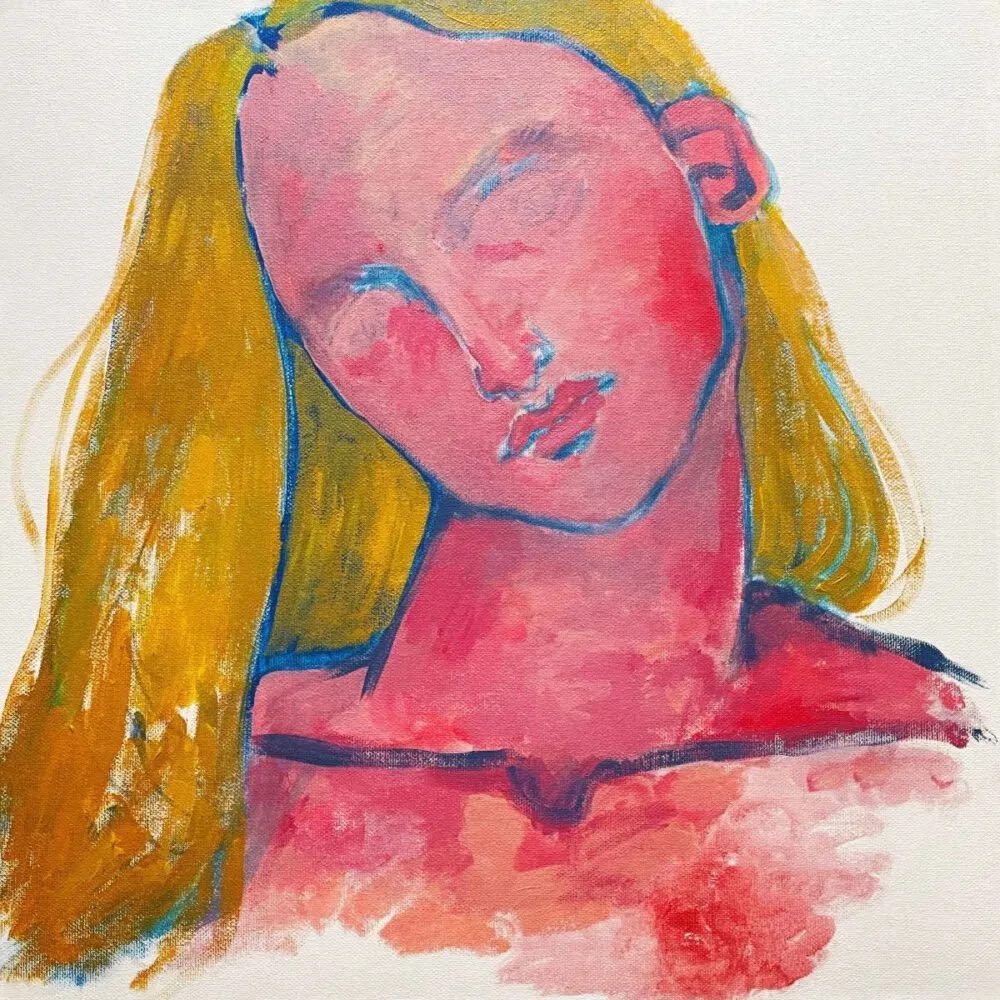Billie Marten
Dog Eared
FICTION
The title for Billie Marten's fifth album, Dog Eared, is pulled from the British songwriter’s love of underlining, scribbling in the margins, and folding down the corners of pages in her favorite novels. The artist born Isabella Sophie Tweddle composes beautifully hushed and poetic folk-pop music reminiscent of Laura Marling or her collaborators in Flyte (that band’s Will Taylor is also her partner). Her music stands in a singular spot in the current indie-folk ecosystem, though. Dog Eared contains full-band movement even in its most personal moments as Marten reflects on indelible scenes from childhood as seen through world-weary, adult eyes—like a river flowing over rocks, smoothing them over time. Memories do that, sometimes. Time makes you forget things, but it also softens the edges. A band can help with that, too.
Dog Eared and its melodic riverbed of spontaneity will deepen longtime listeners’ appreciation of Marten’s lyrical vulnerability, while expanding her list of folk-pop collaborators. Producer Phil Weinrobe tosses some rougher stones into Marten’s familiar sound while giving the album plenty of room to spread out. Most of Dog Eared was recorded at Weinrobe’s Sugar Mountain studio during a humid Brooklyn summer, but the whole album feels breezy and effortless. Opener and early single “Feeling” is a piano-pop stunner that touches on childhood memories of Tweddle falling deep into her father’s large hands, hiding at the top of stairs, and driving toy cars in patterns around her grandmother’s rugs. Waiting for the next feeling is the hardest part for kids, while the memory of that feeling is the hard part when they grow up. Tweddle likens the impermanence of tapping into these feelings to the softness and translucence of a rabbit’s ear.
Softness can be as sharp as a sword in the Billie Marten musical universe. The second track, “Crown,” slinks into its feeling fast and loose. It’s more of a full-band song that sets the scene for the rest of Dog Eared as the themes of neuroses and adulthood tumble out as effortlessly as Josh Crumbly’s bass melody. The record’s rhythm section makes this album stand out in a few spots. The pitter-patter drumming and pirouetting bass heard on “The Glass” is like the sound of Marten-as-child tapping at a window, waiting for her father to come home. It’s a playful and anticipatory song, and the lyric “let me play” stands out like a flag on a new folk horizon for Marten’s music. The end of that song sounds like it’s floating up to the clouds.
Tweddle still writes songs in front of her window or on stairwells, waiting for some inspiration to tug at her sleeve from the in-between places. The Flyte-like “Clover” and “No Sudden Changes” have that daydream quality, as well. The latter song’s Moog and classical guitar segments come from Shahzad Ismaily, an undersung multi-instrumentalist who’s made some real magic on several unique albums over the past decade and change, collaborating with artists like Moses Sumney and Arooj Aftab. Weinrobe and Tweddle also brought in a capable crew of guitarists and keyboard players that speckled the album with little motes of light swirling in the ether.
The album’s final stretch rolls back to Marten’s country and folk roots, but the band is still there, doodling in the margins. Closing track “Swing” never quite fit on previous albums, but here it slots in as the band swings and Tweddle sings. Sam Amidon drops in a playful fiddle line on top, and the good vibe rolls forward like a gust of wind. Tweddle is back to childhood at the end as she sings, “I talk to trees / ’Cause they are staring at me / All the time / All the time.” On Dog Eared, Billie Marten’s daydreaming has capable accompaniment as these players dog-ear the best moments.







